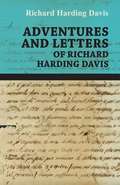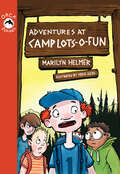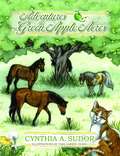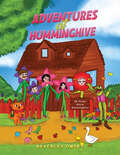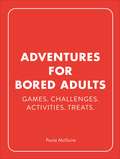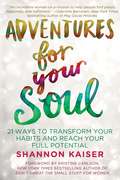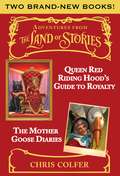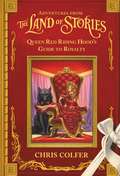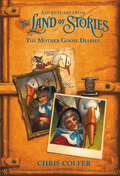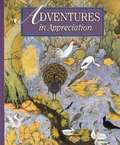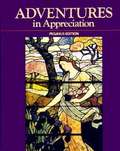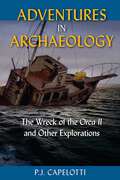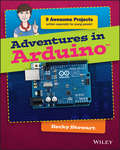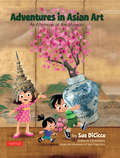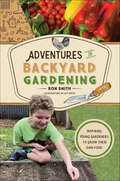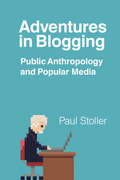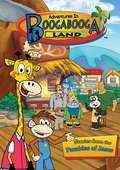- Table View
- List View
Adventures and Letters of Richard Harding Davis
by Richard Harding DavisThis early work by Richard Harding Davis was originally published in the early 20th century and we are now republishing it with a brand new introductory biography. <P> <P> 'Adventures and Letters of Richard Harding Davis' is a collection of writings spanning his entire career and includes his articles from the Congo, Japan, London, and much more. Davis attended Lehigh University and Johns Hopkins University, but was asked to leave both due to neglecting his studies in favour socialising. During the Second Boer War in South Africa, Davis was a leading correspondent of the conflict. He saw the war first-hand from both parties perspectives and documented it in his publication 'With Both Armies' (1900). He wrote widely from locations such as the Caribbean, Central America, and even from the perspective of the Japanese forces during the Russo-Japanese War. Davis died following a heart attack on 11th April, 1916, at the age of 51.
Adventures at Camp Lots-o-Fun (Orca Echoes)
by Marilyn HelmerBad weather, bugs and boredom—DJ and the boys in Camp Lots-o-Fun's cabin six are starting to call it Camp Not-so-Fun. To make matters worse, one of the boys has it in for DJ. But DJ isn't about to let that bother him. His lively imagination and wit ensure there's never a dull moment. A bear in the woods, monsters in the lake and a hermit's ghost make for a week at summer camp that none of the boys in cabin six will soon forget.
Adventures at Green Apple Acres
by Cynthia A. Sudor"Adventures at Green Apple Acres" is a magical place where farm animals live together, face challenges and succeed in overcoming life's obstacles. In the process, they learn some big life lessons...with the help of their friends, both human and animal. By using farm animals to illustrate real life situations and weaving a moral into each story, author Cynthia A. Sudor allows young adults to identify with the animals, read how each character faces and navigates each challenge, and, in the end, learn a life lesson from the animal's experience and eventual success. "My goal is that young adults identify with the real life challenges from each story, see the strength in getting through life's twists and turns, learn how to achieve a successful result and gain strength from the situation," says Sudor. "The animals in this book are ones that I know from my farm and friends' farms, and I know the people characters in the book as well. Each story has a meaningful message."
Adventures at Humminghive
by Beverley Omsky“A charming rhyming story that opens up opportunities for talking with children about feelings and helping and caring for each other.” —Assoc. Professor Kay Margetts “A delightful story where everyone supports and helps each other in a loving, inclusive, and nurturing way.” —Children’s Cancer Institute Support children with cancer by donating to the Children’s Cancer Institute.
Adventures at the bottom of the sea. In Search of the reef of gold! A Fun Fish Book for Children
by A. P. HernándezThe ocean is full of mysteries but, above all, it is full of fish. With this book you can meet the funniest! Alex is a clown fish. Angel is an angel fish (doesn't his name fit him like a glove?). And Aya is a manta ray. And together they go in search of... the reef of gold! Explore the ocean with them, live great adventures and meet many other friends: a moray eel, a parrot fish that speaks more than a parrot and a singing barracuda. Immerse yourself in your reading! A fun children's fish book that includes numerous photographs. Ideal for getting to know the facts and curiosities of some of the fish from the Indo-Pacific Ocean.
Adventures for Bored Adults: Games. Challenges. Activities. Treats.
by Paula McGuireTHIS BOOK IS A MUST-HAVE FOR: staycationing, holidaying, hen or stag dos, parties, office fun, quiet days in. Adventures for Bored Adults will help you beat the boredom with these 100+ hilarious solo and group games, competitive challenges, fun activities and relaxing treats.Whether you're with friends or family, on the move or at home, alone or in a group, it's your ultimate guide to a good time. Never a dull moment again.FEATURING: Bounce the Egg, Spaghetti Scrabble, Pick a sinner, the Gym Bunnies challenge, Morse Inspector, Ransom Devil, Secret Streaking and many more.
Adventures for Readers, Book One: Pegasus Edition
by The Editors at the Harcourt Brace JovanovichHigh School Literature Textbook
Adventures for Your Soul
by Shannon Kaiser"An incredible woman on a mission to help people find peace,happiness, and fulfillment." Gabrielle Bernstein, author of Miracles NowHave you ever felt like there's something holding you back?Maybe that something is you . . . Sometimes the one thing you need to make a change is to see things from a fresh perspective. Discover twenty-one innovative emotional explorations to boldly confront the habits that are holding you back in this breakthrough guide that provides the tools you need to fearlessly embrace your innermost desires. Drawing from her own transformational experiences, Shannon Kaiser's program utilizes an empowering process that encourages you to go on adventures for your soul so you can: * Achieve your goals* Remove limiting beliefs and self-sabotaging patterns* Feel freedom from fear and live with purpose and passion* Be unapologetic about your innermost desires* And make happiness your natural way of life By focusing on how your life feels instead of how it looks on the outside, you can passionately experience your own life adventures. By changing the way you see yourself, you can ultimately live life to the fullest.
Adventures from Mr. Fix It's Channel
by Eve MortonDerek Smith has been working as a super since the New Year, but still can't quite get the hang of it. He can clean, he can deliver notices, and he can even evict people without too much fuss -- but fixing toilet tanks? No, thank you.Yet that is what he is tasked with doing when an order comes down from the higher up bosses. Since this job is pretty cushy so far, he tries it out. And soon learns from a very impressive expert called Mr. Fix It online.Derek soon becomes obsessed with the deep voice of the plumber, along with his calloused hands and his skills fixing anything he touches. He can't see him -- Mr. Fix It never shows his face online -- but Derek is pretty sure he'd fall for him right away if he saw him in person. What that means for Derek -- a typically straight guy -- he's not too sure. But his fantasies are harmless, and so he continues to both use Mr. Fix It's video to repair his building and get himself off at night.When an emergency in the building means that Derek must call in outside help, a familiar plumber shows up and lends more than a helping hand ...
Adventures from the Land of Stories Boxed Set: The Mother Goose Diaries and Queen Red Riding Hood's Guide to Royalty (The Land of Stories)
by Chris ColferFeaturing Mother Goose and Queen Red Riding Hood, fan favorite characters in the Land of Stories series, this boxed set is a must-have for new and old fans alike. From New York Times bestselling author Chris Colfer comes two new books about two beloved characters, Mother Goose and Queen Red Riding Hood. Mother Goose's diary entries over the last five hundred years take readers on a journey to learn buried secrets; and the young queen gives us her take on politics, government, health, love, and of course, what it means to be royalty.
Adventures from the Land of Stories: Queen Red Riding Hood's Guide to Royalty (The Land of Stories)
by Chris ColferLearn about all things royal from fan favorite character Queen Red Riding Hood in this fun addition to the #1 New York Times bestselling series, The Land of Stories.From beloved author Chris Colfer comes a magnificent guide for anyone who is either royal, or might one day become royal after narrowly escaping Death by Wolf. Read the pages within for boundless wisdom regarding royal style and advice on how to handle one's subjects. We wish you a long and successful reign (provided you are not an enemy of our kingdom).Full of fun and helpful tips, fans will love getting a mandatory education from her majesty, Queen Red Riding Hood.
Adventures from the Land of Stories: The Mother Goose Diaries (The Land of Stories)
by Chris ColferGet a front row seat to the adventures of the mischievous Mother Goose, a fan favorite character in the #1 New York Times bestselling series, The Land of Stories.Mother Goose has had centuries of adventure and finally she's allowing her favorite readers to take a peek at all her secrets. Who else gossiped with Queen Elizabeth I, taught geography to Napoleon, marched for equal rights with Martin Luther King Jr., and served as Andy Warhol's muse?With Chris Colfer's trademark wit and humor, fans will love getting the inside scoop on Mother Goose.
Adventures from the Technology Underground: Catapults, Pulsejets, Rail Guns, Flamethrowers, Tesla Coils, Air Cannons, and the Garage Warriors Who Love Them
by William GurstelleThe technology underground is a thriving, humming, and often literally scintillating subculture of amateur inventors and scientific envelope-pushers who dream up, design, and build machines that whoosh, rumble, fly--and occasionally hurl pumpkins across enormous distances. In the process they astonish us with what is possible when human imagination and ingenuity meet nature's forces and materials. William Gurstelle spent two years exploring the most fascinating outposts of this world of wonders: meeting and talking to the men and women who care far more for the laws of physics than they do for mundane matters like government regulations and their own personal safety. Adventures from the Technology Underground is Gurstelle's lively and weirdly compelling report of his travels. In these pages we meet Frank Kosdon and others who draw the scrutiny of the FAA, ATF, and other federal agencies in their pursuit of high-power amateur rocketry, which they demonstrate to impressive--and sometimes explosive--effect at the annual LDRS gathering held in various remote and unpopulated areas (a necessary consideration since that acronym stands for Large Dangerous Rocket Ships). Here also are the underground technologists who turn up at the Burning Man festival in the Nevada high desert, including Lucy Hosking, "the engineer from Hell" and the creator of Satan's Calliope, aka the World's Loudest Thing, a pipe organ made from jet engines. Also at Burning Man is Austin "Dr. MegaVolt" Richard, who braves the arcing, sputtering, six-digit voltages of a giant Tesla coil in his protective metal suit. Add in a trip to see medieval-style catapults, air cannons, and supersized slingshots in action at the World Championship Punkin Chunkin competition in Sussex County, Delaware, and forays to the postapocalyptic enclaves of the flamethrower builders and the future-noir pits of the fighting robots, and you have proof positive that the age of invention is still going strong. In the world of science and engineering, despite its buttoned-down image, there's plenty of fun, humor, and sheer wonder to be found at the fringes. Adventures from the Technology Underground takes you there. * Launch homemade high-power rockets. * Catapult pumpkins the better part of a mile. * Watch robot gladiators saw, flip, and pound one another into high-tech junk heaps. * Dazzle the eye with electrical discharges measured in the hundreds of thousands of volts. * Play with flamethrowers, potato guns, and other decidedly unsafe toys . . . If this is your idea of fun, you'll have a major good time on this wild ride through today's Technology Underground. From the Burning Man festival in Nevada's high desert to the latest gathering of Large Dangerous Rocket Ship builders to Delaware's annual Punkin Chunkin competition (a celebration of "science, radical self-expression, and beer"), you'll meet the inspired, government-unregulated, and corporately unfettered men and women who operate at the furthest fringes of science, engineering, and wild-eyed arc welding, building the catapults, ultra-high-voltage electrical devices, incendiary artworks, fighting robots, and other machines that demonstrate what's possible when physics meets human ingenuity.
Adventures in American Literature (Athena Edition)
by HodginsA journal written five hundred years ago reports: "The admiral, at ten o'clock in the night, being on the stern-castle, saw a light. ... it was like a small wax candle, which was raised and lowered." <P><P>The night was that of Thursday, October 11--12, 1492. The "stern-castle" was the raised back deck of the ship Santa Maria, which had left Spain on August 2. The admiral was Christopher Columbus, and the light--which he probably only imagined seeing--turned out to be an island. The native inhabitants, he learned when he landed the next day, called the island Guanahaní, but he renamed it San Salvador. These native inhabitants, the Arawak people, received the Spaniards favorably at first. Eventually, a dispute seems to have broken out; hardly surprising considering the two peoples shared no common language, customs, and religion. Apparently the Arawaks convinced the Spaniards to go to other islands with promises of untold treasures to be found. Six years later, Columbus began to realize that he had reached a place whose existence he had never suspected. "I believe that this is a very great continent," he wrote on his third voyage to America, "which until today has been unknown."
Adventures in American Literature: Curriculum and Writing (Heritage Edition, Revised)
by Kenneth Silverman Francis HodginsA high school textbook of the literature produced in the United States since colonial times, with some American Indian offerings and with study and discussion material.
Adventures in Appreciation (Athena Edition)
by Carroll Moulton Glenda Zumwalt William BassellThe book is a collection of poems, stories, dramas and biographies from different books. It has questions at the end of each section, breaks down the process of essay writing and also defines some vocabulary at the end of each illustration.
Adventures in Appreciation (Heritage Edition)
by Fannie Safier Kathleen T. DanielLearn literature through short stories, essays, biographies, autobiographies, poetry, drama, novels and much more.
Adventures in Appreciation: Pegasus Edition
by The Editors at the Harcourt Brace JovanovichThe book presents guidelines to engage and appreciate various forms of literature like short stories, poems etc and how we should prepare ourselves for our own write-up.
Adventures in Archaeology: The Wreck of the Orca II and Other Explorations
by P.J. CapelottiRemnants of the curious and peculiar ways humankind has marked the archaeological landscape are abundant but often ignored: wrecked aircraft, abandoned airfields, old highway billboards, derelict boats, movie props, and deserted mining operations. In this book, archaeologist P.J. Capelotti explores places and things that people do not typically think of as archaeological sites and artifacts, introducing readers to the most extreme fieldwork taking place today. Capelotti shows that even seemingly ordinary objects from the recent past hold secrets about the cultural history of humans. He investigates the site where a stunt copy of the Orca, the fishing boat used in the movie Jaws, was stripped to pieces by fans—a revelation of the ways humans relate to popular culture. He takes readers to abandoned base camps near the North Pole that are now used as destinations for Arctic tourism. Retelling the story of Thor Heyerdahl’s research expedition across the Pacific Ocean on a balsa log raft, Capelotti shows how experimental archaeology attempts to reveal cultural connections between continents. And he doesn’t stop at the limits of the planet. He discusses debris floating through outer space and equipment left behind on the surface of the moon, highlighting current efforts to preserve artifacts that exist beyond the Earth’s atmosphere. These discarded materials, says Capelotti, help archaeologists piece together the sweeping story of human cultural expansion and exploitation. He explains how the unusual sites of shorelines, sea, air, and space represent the farthest reaches of human civilization. His enthusiasm will inspire readers to set out on their own to investigate the secret meanings of treasures hiding in plain sight.
Adventures in Arduino
by Becky StewartArduino programming for the absolute beginner, with project-based learning Adventures in Arduino is the beginner's guide to Arduino programming, designed specifically for 11-to 15-year olds who want to learn about Arduino, but don't know where to begin. Starting with the most basic concepts, this book coaches you through nine great projects that gradually build your skills as you experiment with electronics. The easy-to-follow design and clear, plain-English instructions make this book the ideal guide for the absolute beginner, geared toward those with no computing experience. Each chapter includes a video illuminating the material, giving you plenty of support on your journey to electronics programming. Arduino is a cheap, readily available hardware development platform based around an open source, programmable circuit board. Combining these chips with sensors and servos allows you to gain experience with prototyping as you build interactive electronic crafts to bring together data and even eTextiles. Adventures in Arduino gets you started on the path of scientists, programmers, and engineers, showing you the fun way to learn electronic programming and interaction design. Discover how and where to begin Arduino programming Develop the skills and confidence to tackle other projects Make the most of Arduino with basic programming concepts Work with hardware and software to create interactive electronic devices There's nothing like watching your design come to life and interact with the real world, and Arduino gives you the capability to do that time and again. The right knowledge combined with the right tools can create an unstoppable force of innovation, and your curiosity is the spark that ignites the flame. Adventures in Arduino gets you started on the right foot, but the path is totally up to you.
Adventures in Asian Art: An Afternoon at the Museum
by Sue DiciccoRide on a rhino, become a samurai, or climb Mt. Fuji! Asia is an entire world of wonderful places to go and things to see and do!Exploring other cultures is a favorite classroom activity for teachers and students alike. Now, author Sue DiCicco draws on her background as a writer, illustrator, sculptor, and former Disney animator to take kids on an imaginative tour of China, Japan, Korea, India, and beyond through artifacts on display at the Asian Art Museum in San Francisco.Adventures in Asian Art travels from exhibit to exhibit, inviting kids to picture themselves in a variety of Asian countries as they ride on a rhino, become a samurai, or climb Mt. Fuji! Asia is home to an endless array of wonderful places to go and things to see and do, and through the magic of DiCicco's charming verse narrative, readers join a cartoon mom as she takes her three cartoon children through the museum for an afternoon of nonstop fun and learning.This delightfully illustrated, classroom-friendly book shares a series of fun facts about each of the exhibits and explains the culture, beliefs, and daily life informing these wonderful works of art.
Adventures in Backyard Gardening: Inspiring Young Gardeners to Grow Their Own Food (The Adventures Series)
by Ron SmithAuthor is a Environmental Science Educator, Citizen/Community Science Project Leader, and Curriculum Writer The health of the planet and of humanity is connected to food. Where our food comes from matters. How our food is grown matters. The diversity of our food matters. With so many educational initiatives, if kids learn early, it becomes an enduring part of their lives.
Adventures in Blogging: Public Anthropology and Popular Media
by Paul StollerPaul Stoller has been writing a popular blog for the Huffington Post since 2011. Blogging, says Stoller, allows him to bring an anthropological perspective to contemporary debates, but it also makes him a better writer: snappier, more concise, and more focused on the connection he wants to make with readers. In this collection of selected blog posts, Stoller models good writing while sharing his insights on politics (including the emergence of "Trumpism" and the impact of ignorance on US political practices), higher education, social science, media, and well-being. In the process, he discusses the changing nature of scholarly communication and the academy’s need for greater public engagement.
Adventures in Booga Booga Land
by Richard MilnerOpen the doors to a new land! Meet two high-spirited best buddies, Marty the Monkey and Gerard the Giraffe, as they live out 23 biblical parables in a thrilling, adventurous fashion.The excitement never stops from the minute Gerard leaves his hometown of Toosmallforme and soon catches Marty, who is falling from the sky after playing with the latch on the exit door of an airplane. They bounce from venture to venture, presenting the message of Jesus Christ in a clear and challenging format for both children and adults.As you meet Bob, the president of Booga Booga Land, Squid Sushi, and Slim and Sam Pickens,Adventures in Booga Booga Land will captivate you with its humor and truths as our heroes set sail for Gloryland - and challenge you to do the same.Previously Published as The Adventures of Marty the Monkey and Gerard The Giraffe
Adventures in Cartooning: Create a World (Adventures in Cartooning #3)
by Alexis Frederick-Frost James Sturm Andrew ArnoldIn this long-awaited third volume in Adventure in Cartooning series, you’ll find everything you need to dream up and draw fantastical worlds for your character to inhabit!The Knight is back and ready for another cartooning adventure with Edward the Horse! As every adventurer knows, you can’t have an epic journey without an epic new world to explore. They could fly to a floating metropolis or swim through an underwater empire, trek across a frozen tundra or climb to the top of a majestic mountain—the possibilities are endless! But before they do, they’ll need to draw it first. Luckily for them, the Magical Cartooning Elf is ready to help, with brand-new tips and tricks that will turn simple drawings into boundless worlds.
